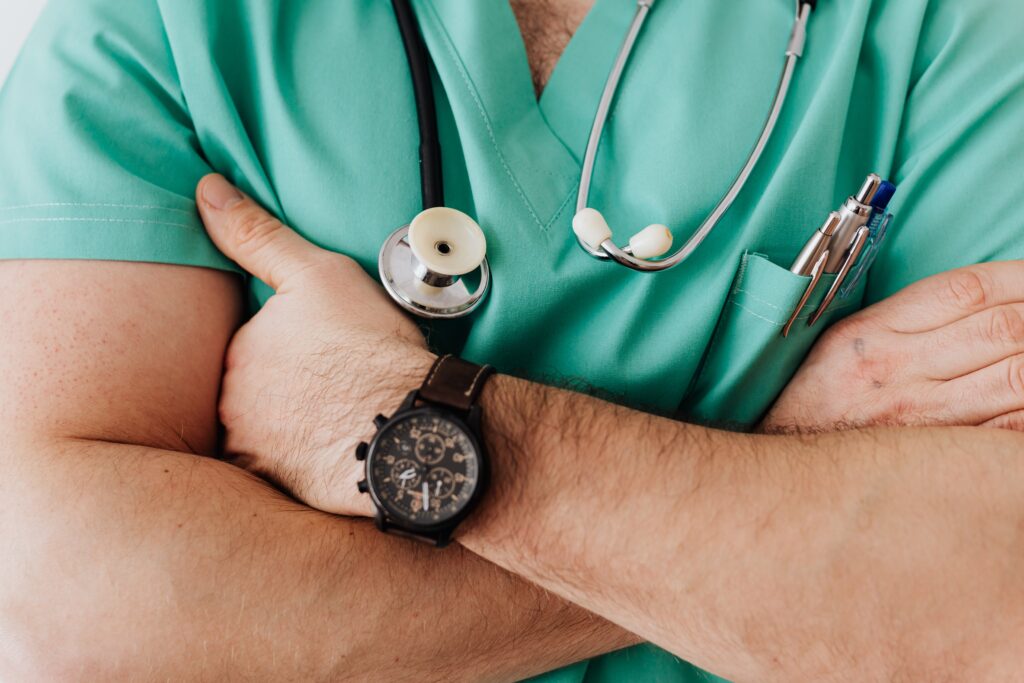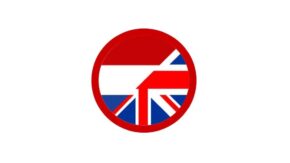
Navigating through a foreign healthcare system can seem daunting for any expat, especially when you’re trying to do so in a new language. The purpose of this post is to equip non-native speakers with fundamental knowledge regarding the Dutch healthcare system. You’re about to delve into a comprehensive understanding of various aspects of healthcare in the Netherlands—from industry structure and jargon to essential Dutch phrases used in medical contexts. Additionally, this post offers a rich exploration of the cultural nuances and social intricacies attached to Dutch healthcare. As you dive deeper, you’ll gain not just linguistic proficiency but also socio-cultural wisdom, both of which are invaluable in accessing and understanding any healthcare system effectively.
Understanding the Dutch Healthcare System
Introduction to the Dutch Healthcare System The Netherlands is known for having one of the top healthcare systems in the world. It operates under a dual system that includes the obligatory basic insurance, which covers common medical care, and additional private health insurance, which covers more specific treatments. Understanding the structure of this healthcare system, the rights of patients, and the roles of medical professionals are vital for navigating healthcare in the Netherlands.
Dutch Healthcare Laws
In the Netherlands, health insurance is mandatory for everyone who lives or works in the country, regardless of nationality. This compulsory healthcare system is called “Zorgverzekeringswet” (Zvw), which translates to Health Insurance Act. Under the Zvw, Dutch residents have a legal duty to arrange basic health insurance. Those who fail to get insured can face hefty penalty fines.
Patients’ Rights in the Netherlands
As a patient in the Netherlands, you possess certain rights. The Patient Rights Law (Wgbo) states that patients must receive clear and understandable information about their medical condition, the purpose of treatments, and any potential risks. Patients also have the right to view their medical record, to freely choose from a variety of healthcare providers, and to maintain confidentiality about their medical treatment and health condition. If disputes arise, patients may register complaints against the healthcare provider and can seek compensation for any damages suffered due to medical malpractice.
Roles of Medical Professionals in the Netherlands
Medical professionals in the Netherlands include general practitioners, medical specialists, and allied health professionals.
General Practitioners (GPs): In the Dutch healthcare system, the GP is the first point of contact if you are sick or have health concerns. They manage a wide range of health problems and conditions. If needed, the GP will refer you to a specialist.
Medical Specialists: These professionals work in hospitals and specialized clinics and are responsible for more specific and advanced treatments. For example, a cardiologist would treat heart diseases while a dermatologist would handle skin conditions.
Allied Health Professionals: Nurses, midwives, dietitians, and other registered healthcare professionals fall under this category. These professionals often work alongside doctors to provide comprehensive medical care.
Common Dutch Healthcare Terms.
Understanding the Dutch language can be a barrier to navigating the Dutch healthcare system. Here are some common terms to know:
1) Huisarts: General Practitioner 2) Ziekenhuis: Hospital 3) Apotheek: Pharmacy 4) Verzekering: Insurance 5) Vergoeding: Compensation or reimbursement
Knowing these terms can make understanding the Dutch healthcare system and communicating with healthcare providers easier, especially in situations that require urgent medical attention.
In closing, navigating the Dutch healthcare system is easier once you understand its structure, laws, and key players. Every Dutch patient has the right to clear communication and quality healthcare; and with the right insurance and knowledge in place, you can ensure those rights are upheld.
Practical Dutch for Medical Contexts
Introduction to Dutch Healthcare Phrases
Navigating the healthcare system in any language can be a daunting task. However, familiarizing yourself with common Dutch phrases used in medical situations can help you feel more confident when seeking medical attention in the Netherlands.
Booking Appointments
When booking appointments, it’s beneficial to understand and use simple phrases in Dutch. Here are some sentences and their translations that could come in handy:
1) Ik wil graag een afspraak maken met de dokter – I would like to make an appointment with the doctor. 2) Wanneer kan ik langs komen? – When can I come by? 3) Is eerder deze week mogelijk? – Is earlier this week possible? 4) Kan ik de afspraak annuleren of verzetten? – Can I cancel or reschedule the appointment?
Describing Symptoms
When visiting a doctor, it’s essential to be able to accurately explain how you’re feeling. Here are some common phrases you might need:
1) Ik voel me niet goed – I do not feel well. 2) Ik heb pijn – I have pain. 3) Ik ben duizelig – I am dizzy. 4) Ik heb hoofdpijn – I have a headache. 5) Ik heb koorts – I have a fever.
Remember, it’s always a good idea to learn about body parts in Dutch so that you can tell the doctor exactly where your pain lies.
Understanding Prescriptions
Understanding prescriptions can be complicated, even in your native language. Here are some phrases related to medicine and prescriptions:
1) Wat is het recept over? – What is the prescription about? 2) Hoe moet ik dit medicijn innemen? – How should I take this medicine? 3) Hoe vaak per dag moet ik dit medicijn innemen? – How many times a day should I take this medicine?
Inquiring about Test Results
Finally, here are some phrases you might need when asking about test results:
1) Wanneer krijg ik de resultaten? – When will I get the results? 2) Kun je me uitleggen wat de resultaten betekenen? – Can you explain what the results mean? 3) Is de aandoening ernstig? – Is the condition serious?
With these phrases in your arsenal, you’ll be better equipped to deal with a healthcare situation in a Dutch-speaking context. However, it’s equally important to bear in mind that you should always seek help from a medical professional if you’re uncertain about any health-related issues.
Cultural and Social Aspects of Dutch Healthcare
Understanding Dutch Healthcare Culture
The Dutch healthcare system is renowned worldwide for its high-quality service and accessibility to all Dutch residents. Understanding the cultural and social aspects of the healthcare system in the Netherlands can enhance your experience as a patient.
Doctor-Patient Relationship in the Netherlands
The nature of the doctor-patient relationship in the Netherlands revolves around frank, direct communication, and shared decision-making. Patients are expected to take an active role in their healthcare decision-making. Dutch doctors will provide you with comprehensive information, and you will be involved in the decision-making processes regarding treatments and medications. It’s culturally acceptable to ask questions, clarify doubts, and even seek a second opinion.
Navigating Hospital Visits
Being prepared can alleviate stress when navigating hospital visits, in the event of an emergency or planned medical appointment. Hospital appointments are typically pre-scheduled, and most healthcare providers prefer that you make appointments through phone call or email. When visiting a hospital, be sure to bring proof of identity and your health insurance card. A good practice is to prepare a list of medications you’re currently taking and any allergies you have as this would be beneficial during the consultation.
Note that in the Netherlands, a medical professional may not necessarily greet you with a handshake – a cultural norm aimed at reducing the spread of bacteria.
Dutch Approach to Health Concerns
The Dutch healthcare system emphasizes on maintaining a good quality of life through health prevention and promotion of lifestyle changes. Often, doctors will suggest lifestyle changes or a wait-and-see approach before resorting to prescribing medication for minor ailments. This is reflective of the Dutch viewpoint that the body is capable of healing itself in many cases.
Further, the Dutch healthcare system acknowledges and embraces complementary and alternative medicine with many providers offering acupuncture, homeopathy, and chiropractic treatments.
Mental Health in Dutch Healthcare
Mental health services are well-integrated into the Dutch healthcare system providing extensive support for various mental health conditions. The Dutch adopt a preventive approach towards mental health which is deeply ingrained in both the Dutch healthcare system and society. It is culturally accepted and encouraged to seek mental healthcare when needed.
In conclusion, navigating the Dutch healthcare system involves understanding the cultural norms and societal expectations. The Dutch approach encourages patients to actively participate in their healthcare decisions, with an emphasis on prevention and lifestyle modifications. The Dutch healthcare system works to provide comprehensive care for all its residents, and understanding these facets can greatly enhance one’s healthcare experience in the Netherlands.
Throughout this journey, you’ve gained a broader perspective on Dutch healthcare, learned key phrases to communicate effectively within this system, and delved into the underpinning cultural and social aspects of Dutch healthcare practices. This knowledge empowers you to tackle health-related scenarios with confidence, whether booking appointments, describing symptoms, or understanding a doctor’s recommendations. The overarching aim has been to provide you with competencies that go beyond immediate medical interactions. Therefore, equipped with this knowledge, you’ve not only built the confidence to navigate the Dutch healthcare system but also broader proficiency that’s key to assimilating into a new social milieu.
